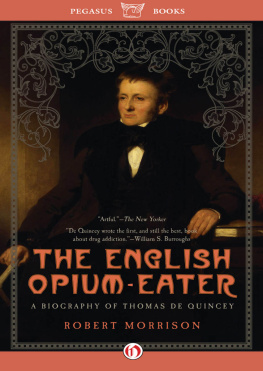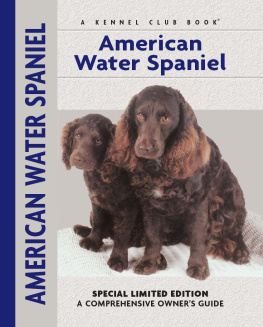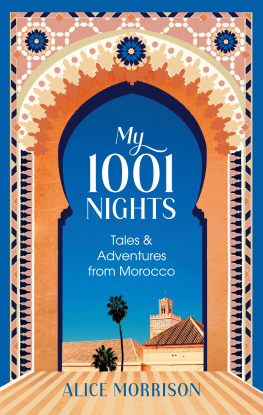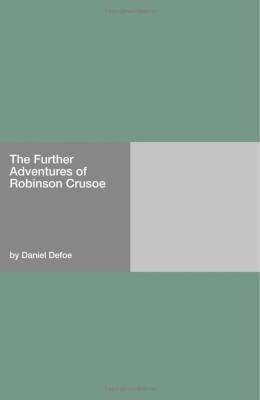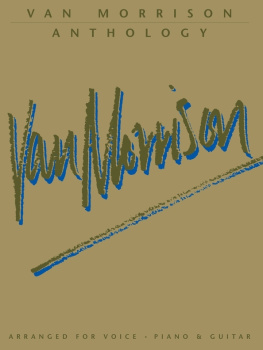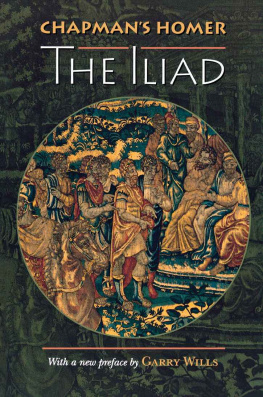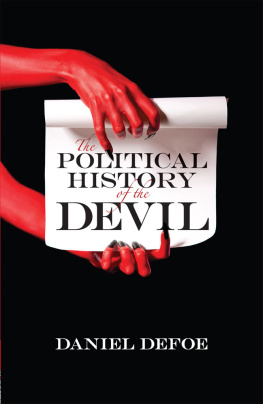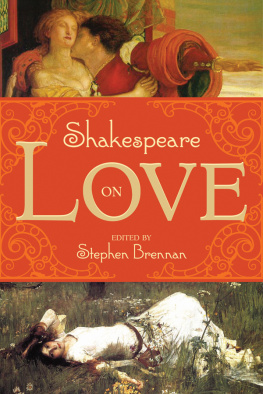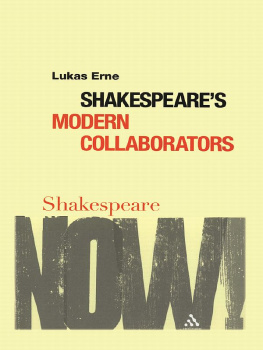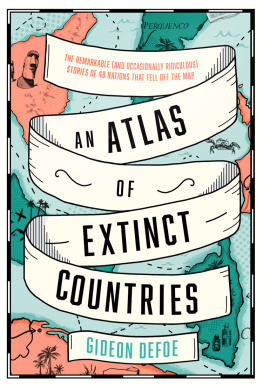Morrison - Shipwrecked: Disaster and Transformation in Homer, Shakespeare, Defoe, and the Modern World
Here you can read online Morrison - Shipwrecked: Disaster and Transformation in Homer, Shakespeare, Defoe, and the Modern World full text of the book (entire story) in english for free. Download pdf and epub, get meaning, cover and reviews about this ebook. year: 2018, publisher: The University of Michigan Press, genre: Home and family. Description of the work, (preface) as well as reviews are available. Best literature library LitArk.com created for fans of good reading and offers a wide selection of genres:
Romance novel
Science fiction
Adventure
Detective
Science
History
Home and family
Prose
Art
Politics
Computer
Non-fiction
Religion
Business
Children
Humor
Choose a favorite category and find really read worthwhile books. Enjoy immersion in the world of imagination, feel the emotions of the characters or learn something new for yourself, make an fascinating discovery.
- Book:Shipwrecked: Disaster and Transformation in Homer, Shakespeare, Defoe, and the Modern World
- Author:
- Publisher:The University of Michigan Press
- Genre:
- Year:2018
- Rating:4 / 5
- Favourites:Add to favourites
- Your mark:
- 80
- 1
- 2
- 3
- 4
- 5
Shipwrecked: Disaster and Transformation in Homer, Shakespeare, Defoe, and the Modern World: summary, description and annotation
We offer to read an annotation, description, summary or preface (depends on what the author of the book "Shipwrecked: Disaster and Transformation in Homer, Shakespeare, Defoe, and the Modern World" wrote himself). If you haven't found the necessary information about the book — write in the comments, we will try to find it.
Shipwrecked: Disaster and Transformation in Homer, Shakespeare, Defoe, and the Modern World — read online for free the complete book (whole text) full work
Below is the text of the book, divided by pages. System saving the place of the last page read, allows you to conveniently read the book "Shipwrecked: Disaster and Transformation in Homer, Shakespeare, Defoe, and the Modern World" online for free, without having to search again every time where you left off. Put a bookmark, and you can go to the page where you finished reading at any time.
Font size:
Interval:
Bookmark:
 Page i Page ii Page iii
Page i Page ii Page iii Disaster and Transformation in Homer, Shakespeare, Defoe, and the Modern World
James V. Morrison
The University of Michigan Press
Ann Arbor
Copyright by James V. Morrison 2014
All rights reserved
This book may not be reproduced, in whole or in part, including illustrations, in any form (beyond that copying permitted by Sections 107 and 108 of the U.S. Copyright Law and except by reviewers for the public press), without written permission from the publisher.
Published in the United States of America by The University of Michigan Press
Manufactured in the United States of America Printed on acid-free paper
Printed on acid-free paper
2016 2015 2014 2013 4 3 2 1
A CIP catalog record for this book is available from the British Library.
Library of Congress Cataloging-in-Publication Data
Morrison, James V., 1956
Shipwrecked : Disaster and Transformation in Homer, Shakespeare, Defoe, and the Modern World / James V. Morrison.
pages cm
Includes bibliographical references and index.
ISBN 978-0-472-11920-2 (hardback) ISBN 978-0-472-12006-2 (e-book)
1. Shipwrecks in literature. 2. Disasters in literature. Shipwreck survival in literature. I. Title.
PN56.S54M67 2014
809.93355dc23
2013045746
Page vTo Ruth, Elizabeth, Ralph, and Jane,
who have explored many islands with me
My hope is to convey the excitement of these shipwreck stories to a broad audience. While I hope that scholars in the fields of ancient and modern literature and history will appreciate the juxtaposition of original works and their modern adaptations, I have attempted to present these ideas in a manner accessible to the general reader, as well as college and university students. (The notes indicate some of the scholarly debates.) In addition, contemporary writers, artists, and musicians, who may be previously unaware of the varied treatments of shipwrecks, may be inspired to respond with creative work.
Many influences have contributed to this project: teaching Derek Walcott's Omeros in my mythology classes; participation in various sessions of the International Conference on Caribbean Literature beginning in 1998; insistent questions from Dan Hooley regarding a paper submitted to Classical and Modern Literature; and especially a fortuitous meeting with Bob Bray, who encouraged further exploration of Walcott and Aim Csaire.
I was fortunate to receive a sabbatical leave and a Stodghill Research Fellowship from Centre College and a yearlong fellowship from the National Endowment for the Humanities. Richard Hull at the Text and Academic Authors Association and Division I Chair Mark Rasmussen and Dean Stephanie Fabritius of Centre College provided for generous grants that helped offset expenses for reproducing images and purchasing licenses to quote modern literary passages. I very much appreciate the valuable questions and suggestions from audiences attending talks of mine on this topic at Centre College, the University of Kentucky, Ohio State University, and Oberlin College. My gratitude goes especially to those who have read and Page viii commented on this work at various points, including Bob Bray, Ruben Dupertuis, Don Lateiner, Elizabeth Morrison, Joan Morrison, Ralph Morrison, Mark Rasmussen, and Ruth Scodel. I thank Ellen Bauerle, Alexa Ducsay, and Mary Hashman at the University of Michigan Press for guiding me through the long gestation of the manuscript.
I gratefully acknowledge images and permission to use illustrations, art-work, photos, and maps from Staatliche Antikensammlungen und Glyptothek Mnchen (figs. ).
I am also grateful for permission to quote literary passages from the following: Csaire's A Tempest, reprinted by permission of Georges Borchardt Inc. for Editions du Seuil; Walcott's The Odyssey, Pantomime, and Omeros, reprinted by permission of Farrar, Straus and Giroux; Foe, by J. M. Coetzee, copyright 1986 by J. M. Coetzee, used by permission of Viking Penguin, a division of Penguin Group (USA) Inc.; and Lord of the Flies, by William Golding, copyright 1954, renewed copyright 1982 by William Gerald Golding, used by permission of G. P. Putnam's Sons, a division of Penguin Groups (USA) Inc. and Faber and Faber Ltd.
Page ixShipwreck Narratives
Swept Away, an Italian film directed by Lina Wertmller (1975), opens with a luxury yacht anchored in the beautiful blue Mediterranean. Wealthy couples explore caves, swim, drink, gamble, and live in a kind of paradise. Prominent among them is Raffaella (played by Mariangela Melato), who is blonde, spoiled, and arrogant. Among the crew on board is Gennarino (played by Giancarlo Giannini), a Communist with dark hair and a beard, who serves food, wine, and coffee to the owners and puts up with their disdain.
The adventure begins when Raffaella decides to go for a swim at dusk. Gennarino takes her toward the caves in one of the inflatable dinghies, though he warns that it is late, that the current is strong, and that the wind is against them. When the engine stalls, Raffaella assumes that they will be rescued, but Gennarino intones, Speriamo (Let's hope so). They spend the night in the dinghy and wake up surrounded by water, with no land in sight. Even when the engine starts, they do not know which way to go.
After two nights adrift, they find land and row in. This is not a true shipwreckthough Raffaella keeps calling it thatbut more of a drifting away (the full title of the film is Swept Awayby an Unusual Destiny in the Blue Sea of August). Though Raffaella is delighted at landfall and assumes that they will find a hotel, Gennarino immediately climbs up rocky terrain and announces that they are on a wild, uninhabited island. No oneNot a soulis there. This leads to a pivotal moment, for Raffaella orders Gennarino to climb again to make sure. He refuses, and when she says, You can't draw blood from a stone, Gennarino erupts. No longer will he defer: I'll do what I fucking likeGo fuck yourself.
Page 2Gennarino and Raffaella respond to the shipwreck situation in very different ways. Gennarino is extremely competent: he finds an abandoned chapel for shelter, catches a lobster, starts a fire by reflecting the sun's rays off a water bottle, retrieves fresh water from a river, and cooks his own meal. He sits there like a king enjoying his feast. Using his only tool, a pocket knife, he later sharpens reeds for fishing and snares a rabbit. Raffaella finds only a tiny sea urchin and comes begging for food. She asks how Gennarino can eat while others are starving. Gennarino finds this query wickedly ironic, coming from a rich woman who symbolizes wealth's unjust distribution in society. When Raffaella attempts to buy his fish, she is told that it is not for sale. Capitalism is overthrown. Gennarino instructs Raffaella that she must earn her food by workingin this case, by washing his underpants. She must also say please and call him Signore Carunchio (signore meaning not only mister but also lord and master). The next day, Gennarino makes Raffaella wait on him just as he waited on her while on the yacht. That night, he sleeps alone in the chapel, slamming the door in Raffaella's face.
The contrasts in the two islanders are obvious: male and female, rich and poor, capitalist and communist, and capable and clueless regarding survival. When Raffaella remarks that they must soon be rescued, he asks, Who knows? It may be years before they are rescued. But one thing is cleartheir relationship has changed. The traditional Gennarino prescribes the new hierarchy: You are a womanYou will wait on meYou will learn who the master is. Gennarino tells Raffaella to kiss her master's hand, and this leads to violence. When she is about to submit to his attempted rape, he rejects her:
Next pageFont size:
Interval:
Bookmark:
Similar books «Shipwrecked: Disaster and Transformation in Homer, Shakespeare, Defoe, and the Modern World»
Look at similar books to Shipwrecked: Disaster and Transformation in Homer, Shakespeare, Defoe, and the Modern World. We have selected literature similar in name and meaning in the hope of providing readers with more options to find new, interesting, not yet read works.
Discussion, reviews of the book Shipwrecked: Disaster and Transformation in Homer, Shakespeare, Defoe, and the Modern World and just readers' own opinions. Leave your comments, write what you think about the work, its meaning or the main characters. Specify what exactly you liked and what you didn't like, and why you think so.


